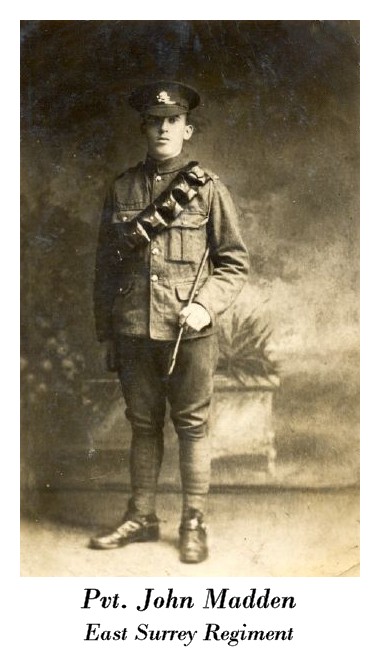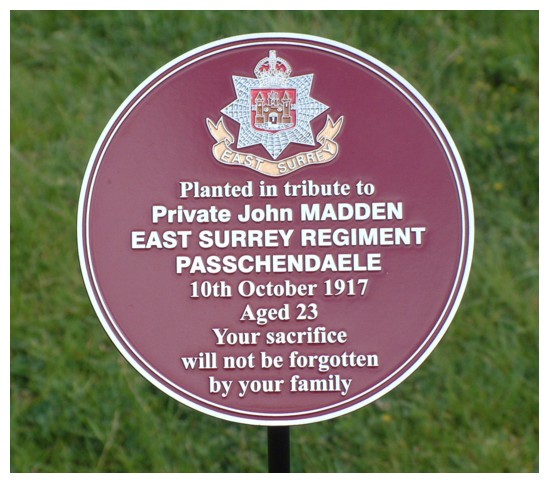One hundred years ago today [10 October], my great uncle, John Madden, was killed at the Third Battle of Ypres at Passchendaele as a member of the 1st Battalion of the East Surrey Regiment.
He was just 23 years-old.
Two of his younger brothers would also serve in the British Army during the First World War, with his brother, Maurice, one of 400 Irish soldiers court-martialled following the Connaught Rangers mutiny in India during the summer of 1920 in protest at the actions of the Black and Tans back home.
Yet for many Irish nationalists, the service of Irishmen in the British military remains a point of contention; a jarring reminder of the complexity of those early decades of the Twentieth Century.
An inconvenient truth.
Nationalist and republican historiography posits that these men were effectively dupes; slaves of empire who bought into the erroneous notion they were fighting for ‘the rights of small nations.’
For John Madden, one of eleven children growing up in Co. Galway, the choice was probably more prosaic. Opportunities in life were minimal; with service in the Great War a form of ‘economic conscription,’ as James Connolly put it.
Until recent times, the sacrifice made by my Great Uncle John – and thousands of Irishmen just like him – was utterly discounted by an Irish state intent on accentuating its differences with Britain.
Of course, the irony is that the failure of nationalists and republicans to recognise the loss of Irish lives in the Great War made it far easier for Unionism to leverage its losses instead.
The slaughter of the brave men of the 36th Ulster Division at the Battle of the Somme provided Unionism’s political leaders with enormous suasion over the British, so potent in securing a breakaway statelet and then allowing it to become a communal fief.
Clearly, the past is a morass of competing and contradictory claims, with Unionist and Nationalist truths existing in splendid isolation from each other.
Yet all roads to true reconciliation require an acceptance of the complexity of relationships between Ireland and Britain and those who cleave allegiance to its differing traditions.
All the more reason, then, to welcome the recent remarks of President Michael D Higgins.
The Irish Times reports he is set to make a speech during his state visit to Australia about ‘ethical remembering’ – the practice, as the Irish Times describes, of ‘putting oneself in the shoes of another and allowing for different narratives to be explored .’
His particular subject is the ‘viciousness’ of Irish Civil War, another conflict that has left deep, unresolved divisions, but he could have been referring to how the Irish – of all tribes – remember and commemorate the past more broadly.
A similar approach was outlined by the Archbishop of Armagh, Eamon Martin, during an address in St. Patrick’s Church of Ireland Cathedral at the weekend commemorating the 500th anniversary of Lutheran Reformation:
‘Sometimes we underplay the extent of agreement that exists across our traditions on key doctrinal issues’ he said, ‘including the core issue of justification which triggered so much of the polemic and mutual condemnations of the Reformation period.
‘That is, of course, not to deny that there remain important differences between us…However, changing the paradigm from disagreement and difference to one of friendship and trust, frees up our theologians to debate and clarify the areas of difference that merit deeper understanding and dialogue.’
The willingness to climb outside our respective comfort zones, to look again with fresh eyes on the disputes of the past and recognise that history is more complex than our contemporary identities usually permit, can only lead to increased acceptance and understanding, which might, in turn, lead to greater agreement and political progress.


